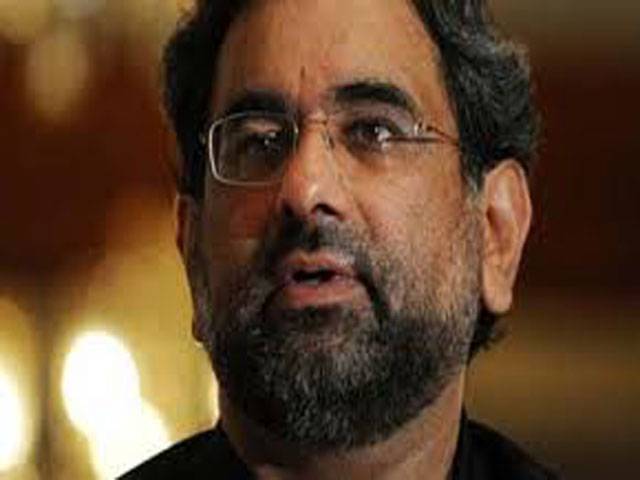ISLAMABAD
Federal Minister for Petroleum and Natural Resources Shahid Khaqan Abbasi on Wednesday said that natural gas production is stagnant at 4000 MMCFD for the last ten years and the imported LNG was only cheaper source to meet the country's energy needs.
Natural gas constitutes approximately 50 percent of the energy mix of Pakistan but the country is facing a severe energy crisis today as during the past ten years the production of natural gas is stagnant, said the minister while addressing a seminar on LNG import. Abbasi said that the country is facing a shortage of 2000 MMCFD during constrained demand while the shortage increases to 4000 MMCFD during unconstrained demand. The minister said in past three governments made five attempts over the ten years to import LNG but they failed for adopting integrated approach where LNG terminal developer was also LNG supplier.
He said the PML-N government resorted to un-bundled approach and the LNG terminal development was separated from LNG procurement, thus succeeding to provide the country with its first LNG based gas within 20 months of its tenure.
The minister said that LNG was a game changer and the 400 mmcfd LNG terminal would add five percent to the country's primary energy mix. The government pursued a transparent process for developing a terminal and the Engro Elengy built the SSGC LNG regasification terminal in a record time as the contract was signed on April 2014 and first gas flow was ensured at March this year. Abbasi said average regasification tolling fee was charged at $0.66 per MMBTU which was the lowest in the world, adding most LNG contracts in the world were priced at direct linkage to oil and Pakistan LNG imports would also be linked to oil.
He said the government was displacing oil products and LNG price at 15 percent of Brent index of $50 would be $7.5 per MMBTU. He said since the country's natural gas production was stagnant at 4,000 mmcfd per day for 10 years and constrained demand stood at 6000 mmcfd with hydrocarbon resources fast depleting, thus minister said government ventured into LNG import. The minister was of the view if Pakistan had committed to LNG 10 years back, the country would not have any energy crisis, today. Pakistan needed to import natural gas through pipelines or LNG, but in fact Iran-Pakistan Pipeline of 750 mmcfd project was delayed due to international sanctions and the first gas could not be available before end of 2017, he added.
In addition, Turkmenistan-Afghanistan-Pakistan-India (TAPI) pipeline with 1325mmcfd also got delayed due to Afghanistan instability and structural issues with the project transaction and first gas was not available before end 2019.
In such situation, the government venture into the LNG import through long term contracts, medium term contracts and sport purchases, Abbasi maintained.
The minister said cost calculations proved that RLNG was a cheaper than all imported fuels and the OGRA had determined RLNG price of 8.64 per MMBTU. He said so far 14 LNG cargoes had been regasified at the LNG terminal, adding the one year contractual commitment was 24 cargoes, but the number could go up in one year to 26 cargoes. He said six cargoes were procured on spot basis from Qatar gas FOB basis and eight cargoes were procured through competitive bid process, adding average price of LNG cargoes procured was less than 14 percent of Brent. He said power generation based on 4000 mmcfd of Regasified LNG would generate additional annual generation of 9 billion KWH, saving from $600 million to $1 billion.
Similarly with under-construction of 3600 MW RLNG based power plants would generate of 30 billion KWH, saving over $2 billion annually. Replying to a question, the minister said the government needed to sign five more contracts to import LNG, as currently, the minister added, LNG cater to the 20 percent of the country's energy needs.
Answering another question, he said the ground-breaking of TAPI project is expected in December this year, which would go a long way in improving energy situation.
He said the government was open to all questions with regard to its efforts for mitigating energy crisis, adding all parliamentarians were invited to forward their suggestions to ensure LNG in the country.
He said each consumer would have to afford its own burden while consuming LNG and burden would not be shifted to any other sectors.






